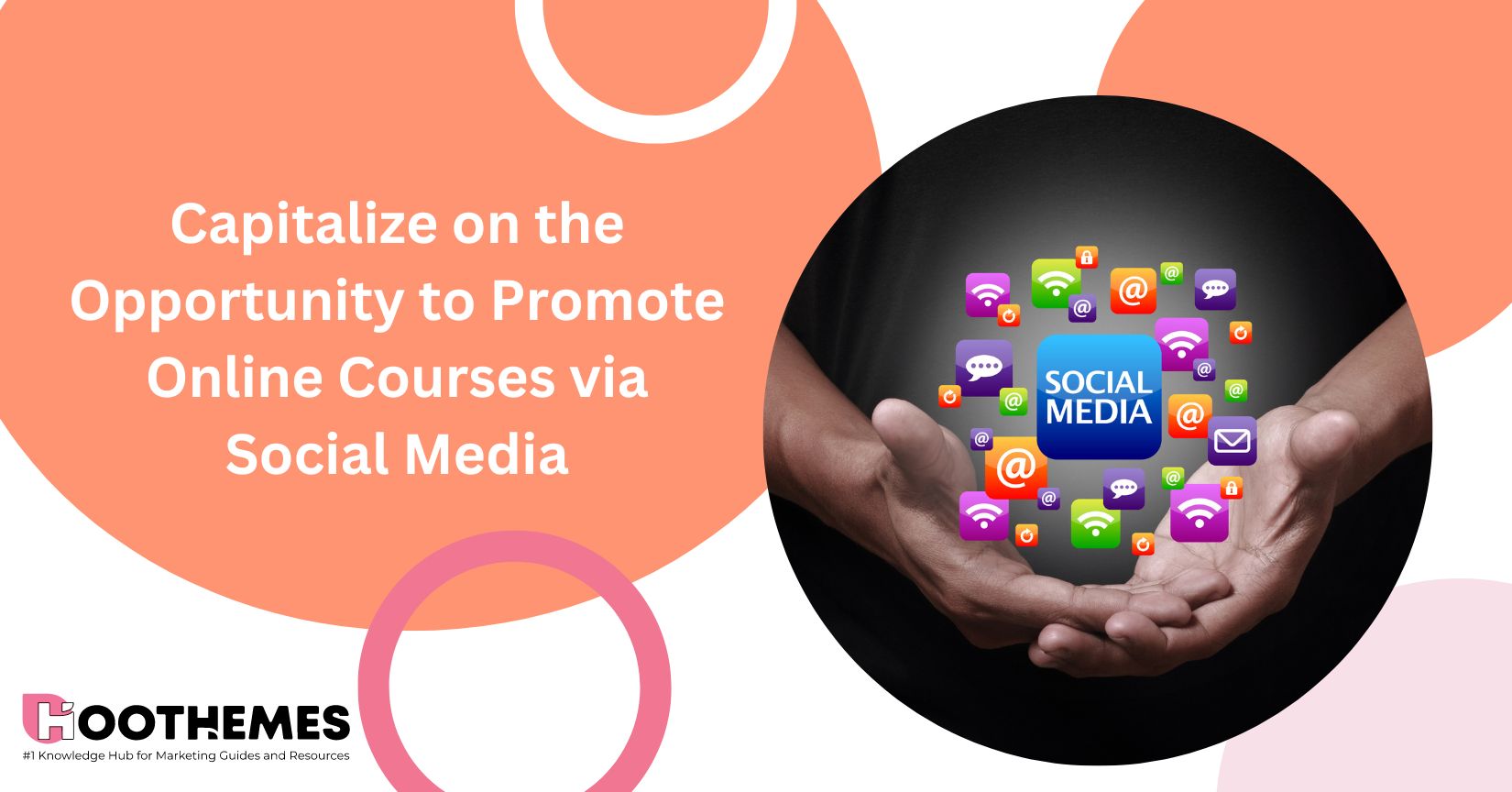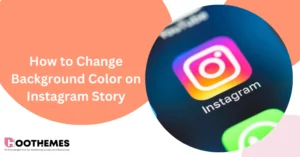Social media has transformed marketing over time; it’s now more than simply a place where you join up to meet people; it’s now a hub for advertising, allowing you to promote online courses and reach new audiences. But how?
Due to the epidemic, which has caused the entire globe to get online, users are turning more and more to e-learning. No longer is education restricted to a physical location and opportunities to hold and promote online courses through social media marketing in 2023 should be capitalized.
Websites Remain Useful Places to Promote Online Courses
The greatest time to take advantage of this opportunity and promote online courses is now because online courses are so popular. Users frequently turned away from traditional teaching techniques and sought out online courses even before COVID-19, making them no longer a novel way to learn.
On the other hand, those who create online courses are gradually realizing that scalability is the final piece of the puzzle for selling online courses.
So, how should your product be recommended? You’re certainly already aware that a wonderful spot to advertise your course is on your website/blog, especially if you frequently provide free material associated with the subject matter of your course.
If we add to the “equation” an attractive website steadily improving and of high functionality, we get a winner – showcasing your course on a top-looking webpage created through one of the free website builders from the tried and tested market.
Consumers Are Willing to Pay Hundreds of Billions of Dollars for Online Education
However, in addition to other methods of promotion, such as through blogs/websites, social media is a great and efficient tool to boost enrollment. Even the statistics work in your favor because most consumers (those taking online courses) conduct their research on social media networks.
Another encouraging statistic is that, by 2022, consumers are predicted to spend over $241 billion on learning via the Internet. It’s cozy, simple to comprehend, and less expensive.
You now need to learn how to work with several platforms, such as making use of the top Instagram giveaway ideas in 2023, each of which has a different theme and is suited for a different audience. Discover which social media is most suitable for you by reading on.
But first, if you want performance, a tried-and-true plan, and knowledge, there are services that can assist you in building and scaling your online course. Many educators, organizations, and businesses have benefited from their assistance in scaling their online courses.
These services/platforms include Teachable, Skillshare, Udemy, and a number of others that have developed impeccable track records over time.
Most Effective Social Media Sites to Promote Online Courses
The top social media sites for marketing right now include, among countless others: LinkedIn, Facebook, Twitter, YouTube, Instagram, Edmodo, and Vimeo. Promote online courses via these; thousands of users will see them. You must still be aware of how distinct each platform might be in terms of interaction.
Is that the approach you want to take, as links can still only be included in the bio part of Instagram posts, for example? Is that the audience you’re aiming for on LinkedIn, which also caters to professionals?
Let’s examine each one more closely…
It’s vital to remember that everyone uses LinkedIn to look for possibilities, network, and even learn new things. You can provide LinkedIn-only courses; professionals are constantly looking to add credentials to their profiles. Execute a self-service LinkedIn advertising campaign and stick to your posting schedule.
The most popular social media site is used by people of all ages. It’s the ideal hub for advertisers; your grandmother and little brother both utilize it. You can promote online courses to prospective students by using Facebook ads that are specifically targeted.
Facebook actually includes unique marketing tools (creates contacts, holds webinars, sends newsletters…) to help you quickly sell your course.
The “bird” app known as Twitter is ideal for brief CTAs. The 280-character constraint on tweets allows you to highlight the specifics of your course. Engage the appropriate network, run paid campaigns, and produce leads with ease. Tracking sales is made easy using Twitter Analytics.
YouTube
With 122 million active daily users, this is the most widely used media platform today. This is especially true for students and tutors who sell films on the site.
According to statistics, 86% of users use tutorials, explainers, and lectures on YouTube to further their knowledge. Freely share sneak peeks of your course there.
Don’t forget that the social network with short videos, TikTok, has also been a popular educational resource since the pandemic. It can be used for quick courses or to explore other subjects.
Edmodo
It’s an educational network that has transformed the way people learn. Today, using this tool to manage classrooms is crucial for teachers.
Display the courses in your situation and then sign up to teach. Students and teachers are encouraged by Edmodo to have a conversation and establish a connection with other users.
Vimeo
Given the constant discussion surrounding video marketing, Vimeo is the ideal site for uploading promotional movies and freely disseminating them through other media.
Despite having a lesser viewership (170 million people viewing), Vimeo nevertheless draws a niche. While YouTube is more mainstream and informal, the app is regarded for its high-quality, professional material.
7 Effective Social Media Marketing Techniques to Promote Online Courses
Let’s focus on the marketing strategy considering you have an understanding of the specific qualities that distinguish each social media network.
Keep in mind that when promoting, content optimization is crucial. No matter how popular a media is, your campaign will definitely result in sales.
#1 Set Specific Goals
Define the identity, or what the online courses represent. Audiences will take it that way. What unique services can you provide? How do your courses fit the dynamics of the classroom? In terms of graphics, do you intend to make infographics? What ideas will you illustrate?
You may determine the main focus of your classes by thinking about all of these issues. For instance, a lot of colleges place a focus on their setting, which includes the campus’s amenities, social scene, and general setting.
What’s your backup strategy? Think about making a personal profile or checklist! Making a social media strategy won’t be tough once you identify the persona and the main promotional themes.
#2 Select the Platforms for Your Social Media Marketing
Since we’ve already covered it, each platform has advantages of its own. Additionally, if you have a successful business, always update and optimize your social media accounts across all platforms. Advertise it because most customers won’t be aware that there’s an online option now.
Modify your Facebook cover photo and your “About” page specifically. Examine your Instagram bio and be sure to provide a clear mention of your services, as well as a link to online training.
Your brand’s awareness will benefit from these small changes. Include significant credentials in Facebook’s “Milestones” part; reviews contribute to trust-building.
Be warned that obtaining an organic reach may be challenging and time-consuming. Run campaigns and social media ads in this situation. Create an event on Facebook and use platforms like Instagram and LinkedIn, among others, which cater to advertising quite well. Thankfully, you can also target an audience and specify a range.
#3 Make a Top-Notch Teaser
New changes require you to adapt! The public will remain interested in a brief, high-quality teaser. You can start a short walkthrough that describes the course.
You might also take into account the popular app TikTok in this case; in addition to utilizing it for teasers, you might additionally utilize it for mini-lessons or how-to films.
Be aware that your course’s organization plays a big role in this. Students will take advantage of the trial period for free and not buy the course if the teaser course is excessively similar to the genuine online course.
Therefore, create your teaser course in a manner that makes users inquisitive and want more while also letting them take advantage of the free trial; a circumstance where everyone benefits.
#4 Engage on Social Media, Especially LinkedIn and Facebook
Despite having an outdated appearance, Facebook is still widely used for one crucial factor: the community. Similar to this, LinkedIn isn’t simply for getting a job – the individuals you interact with there are interesting, too. Both sites are excellent for connecting with like-minded people and exchanging novel ideas.
In marketing, it’s advised to rely on word-of-mouth, and organizations can help with that. Conversations are fluid when users with diverse backgrounds, perspectives, and areas of expertise engage in discussion around a shared subject.
Participate actively and mention your online courses. Be discreet, though. Avoid interacting with the primary purpose of selling a service and speak genuinely.
#5 With Facebook Live, a LinkedIn post, and Other Social Media Channels Launch Your Online Course
Push the boundaries of video promotion conventions. Go live and have one-on-one conversations with users. Over the past five years, Facebook Live has attracted over two billion viewers, enabling users and advertisers to interact in a very natural way.
For your online classes, hold a round of questions and answers to deal with any queries that learners may have.
When taking into account the typical target market and the requirement to “network”, a post on LinkedIn can go a long way. In fact, LinkedIn users are constantly looking for these chances, so join in if this is your target market. Who knows, LinkedIn is the a-game and you might even find a collaboration opportunity.
Utilize Instagram’s eye-catching theme and publish tales and clips as well. For promoting online classes, the aesthetics might appear a little over the top, but rapid infographics, surveys, entertaining activities, and real-time updates make it ideal. Your strategy should include telling stories.
Pro Tip: Here are +250 Creative Ask Me a Question Instagram Ideas for Stories and Posts
#6 Share Course Content Snippets Across All Platforms
Recognize that your online course is a product. Although the title may seem ludicrous, consider it. It’s a course that you created from scratch after putting in countless hours of work. Don’t undervalue its importance; it’s no different from any other commodity.
That being stated, have faith in the courses and spread the word about them on all platforms. However, avoid concentrating on just one social media network.
Marketers frequently ignore other platforms in favor of just one, which results in low interaction. This is dangerous since if your account is suspended, you won’t have access to any other communities. Be wise and mark your presence accordingly.
#7 Monitor Performance
Even though the course is online, handle it as if it were in a traditional classroom. The legitimacy of the course depends on keeping track of the student’s performance. Analyzing learning metrics is a self-aware feedback technique that will always be beneficial.
The following considerations should be made when taking measurements:
● Student advancements,
● Achieved levels of expertise,
● Instructor’s proficiency,
● Client feedback.
But how do you track it? To acquire all the data, use your LMS (learning management system). Keep a record of the assignments that students submit, ask them for feedback, run surveys, and more.
Use More Methods to Promote Online Courses You Created
To promote online courses that make use of webinars, social media is frequently seen as the most efficient method of attracting potential students when it pertains.
However, it’s crucial to look into alternative approaches as well. Podcasting, a sometimes underappreciated media for course advertising, is one such approach.
Undoubtedly, podcasting is an underappreciated medium. It’s also really easy; basically, you’re required to discuss your company, the advantages of the training program, and possibly even some insider data. Just make sure you have a well-defined strategy.
Don’t undervalue the traditional email marketing approach either. It gets to the customer right away. Additionally, since they are familiar with your brand, the email audience is more inclined to buy your services and, therefore, hold onto your email lists.
Email is also risk-free (although improbable, there’s a possibility that your account will be blocked on other platforms).
Final Thoughts
You may create customized social media material that appeals to your target audience and promotes your course with the aid of a well-written course outline.
We sincerely hope that these tactics enable you to effectively promote online courses on social media. You advertise in the same manner and attempt to generate traffic, and with the correct tools, it works when it comes to online marketing courses.
Keep this in mind.




![Read more about the article A Complete Instagram Marketing Guide in 2022 [Tactics, Practices, & Tips]](https://www.hoothemes.com/wp-content/uploads/2022/05/Instagram-Marketing-A-Detailed-Guide-For-2022-300x157.png)




